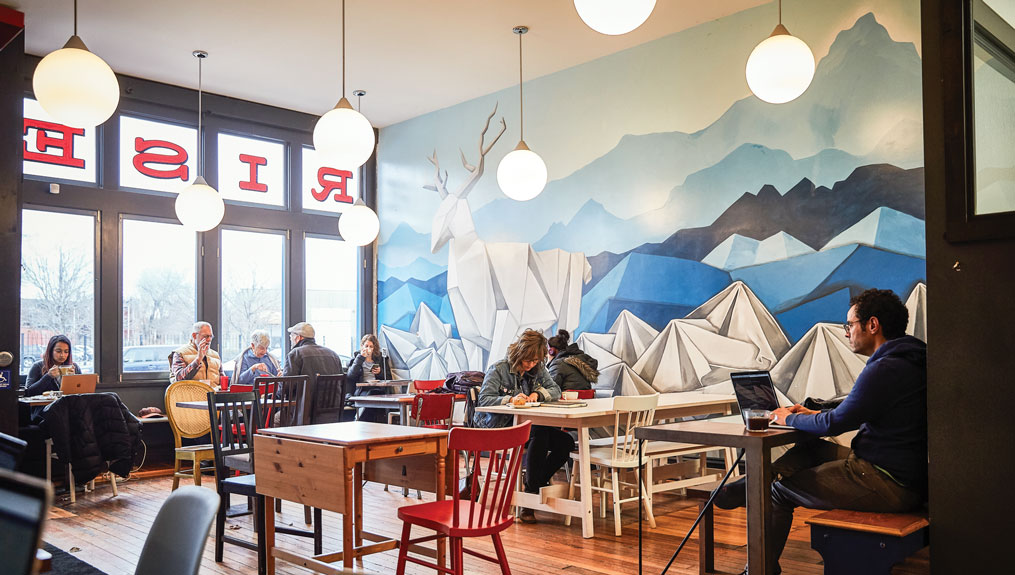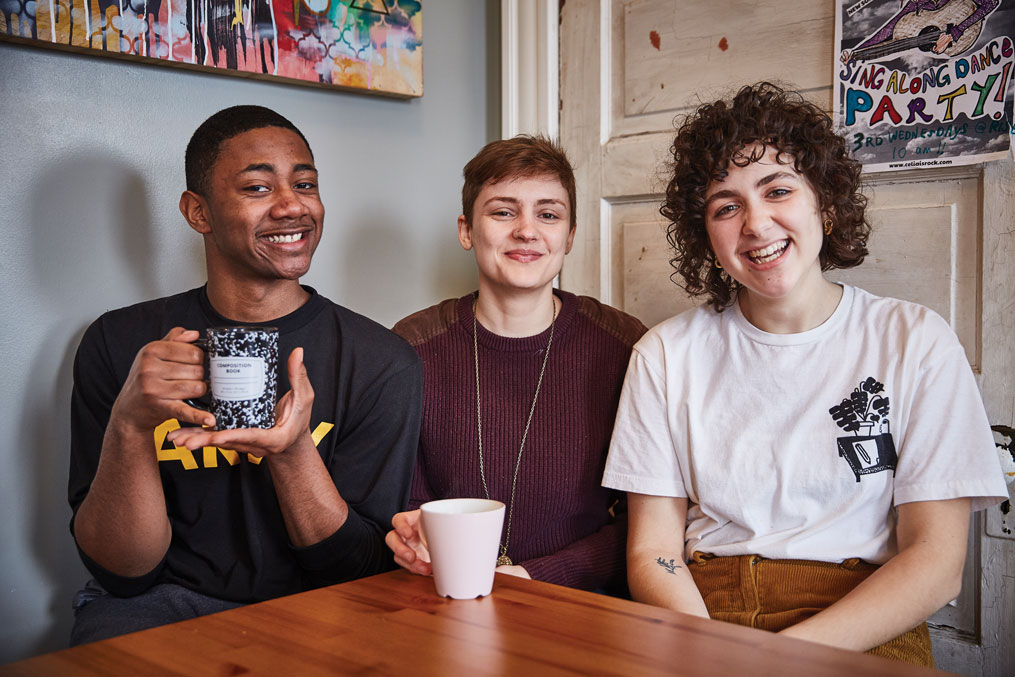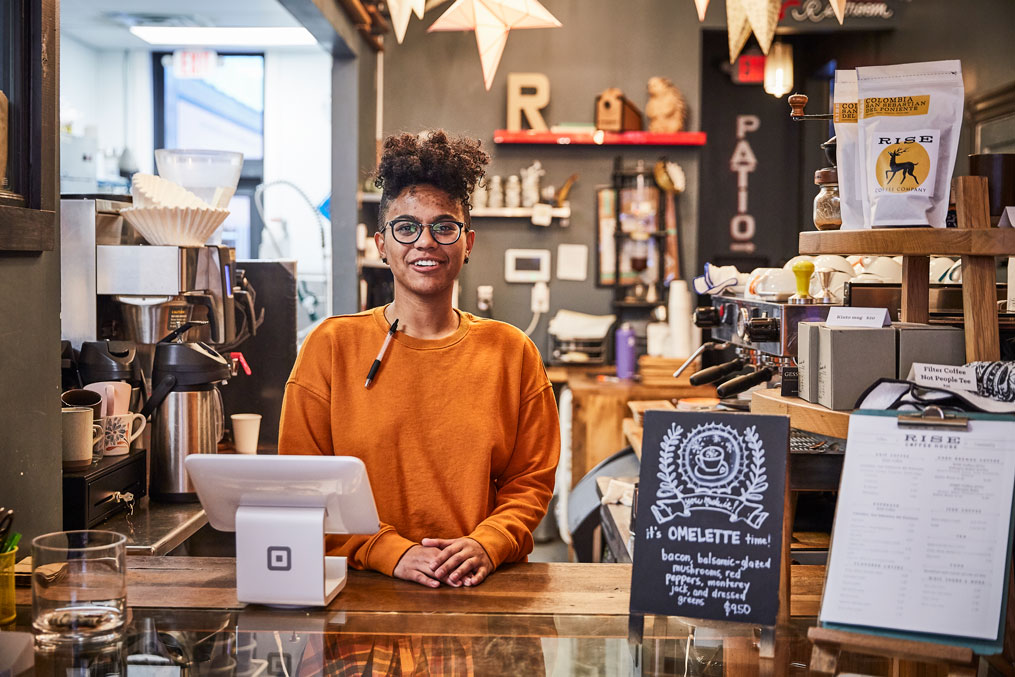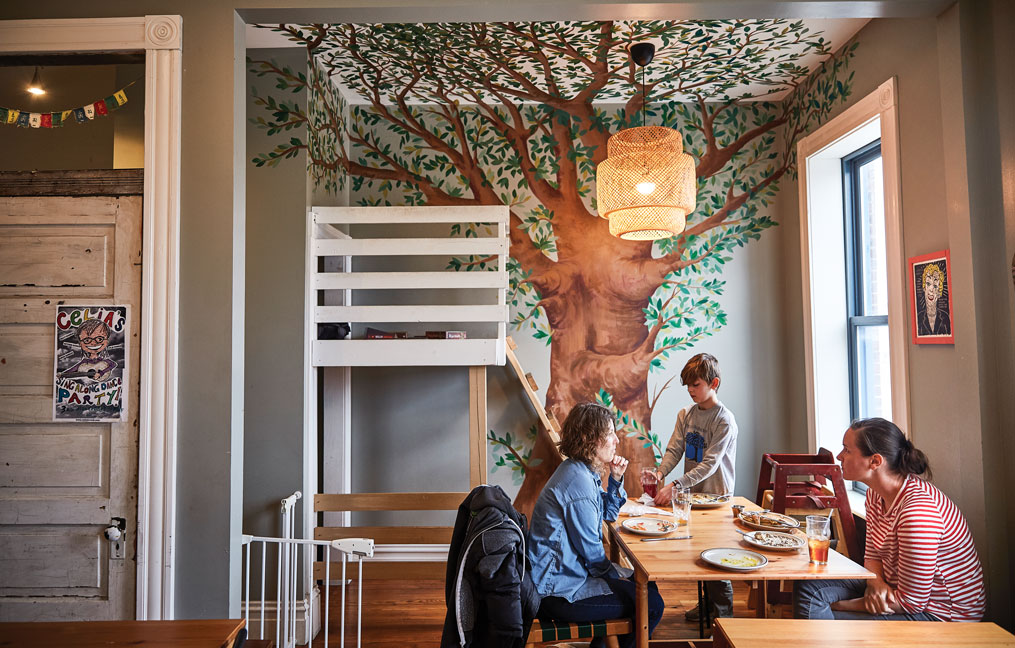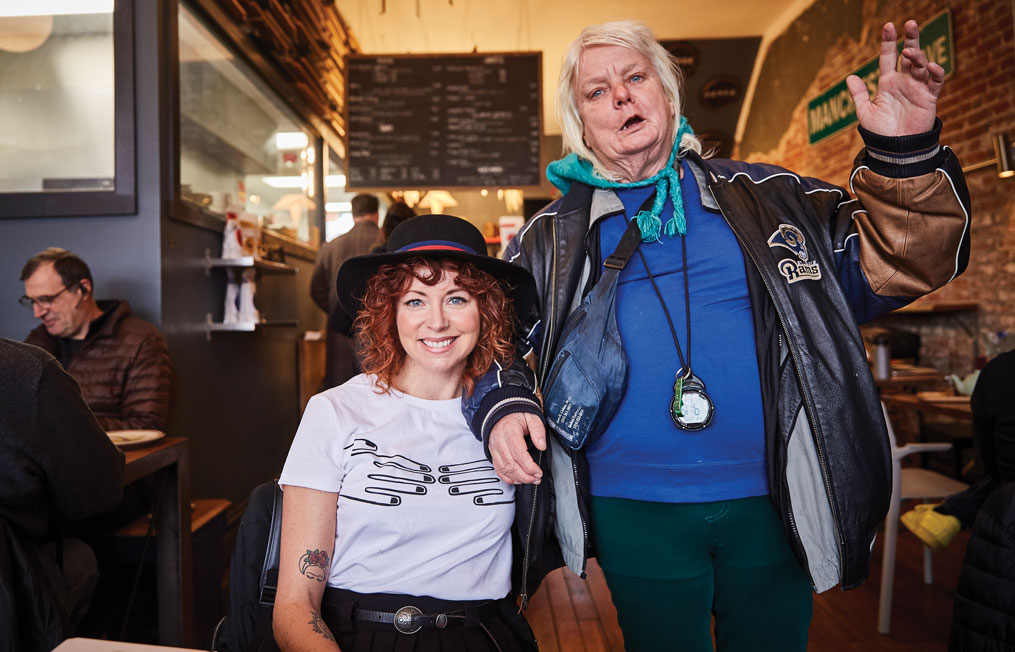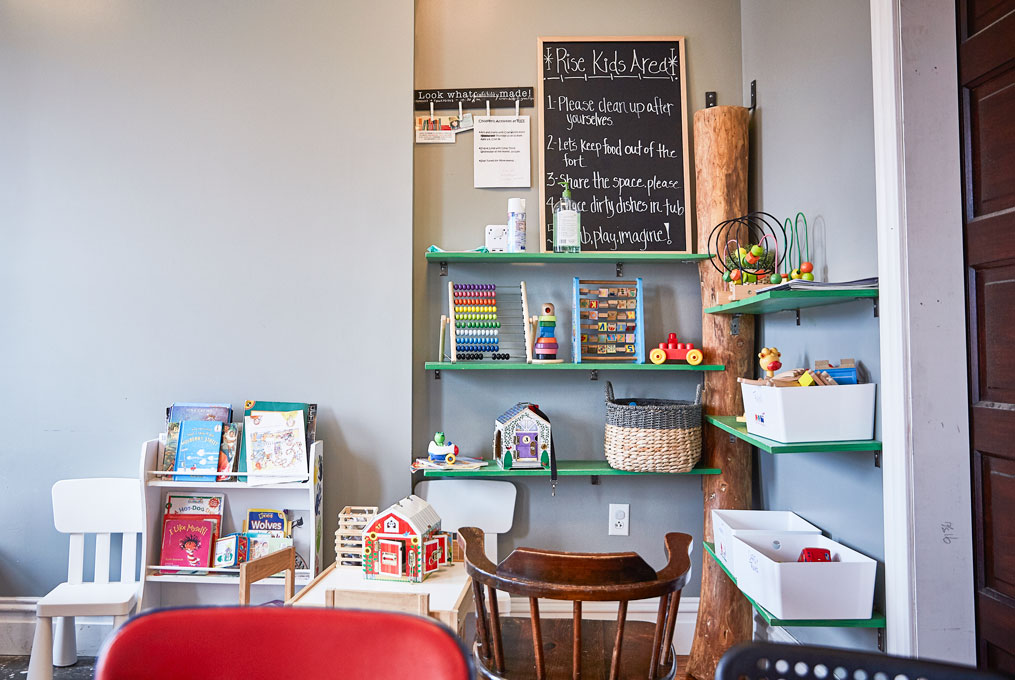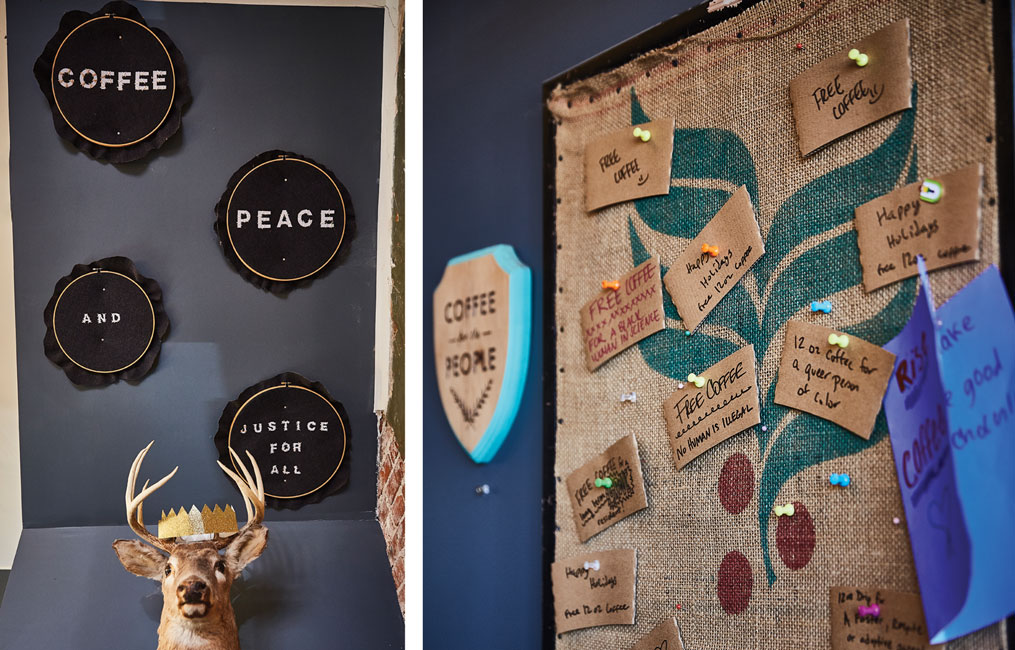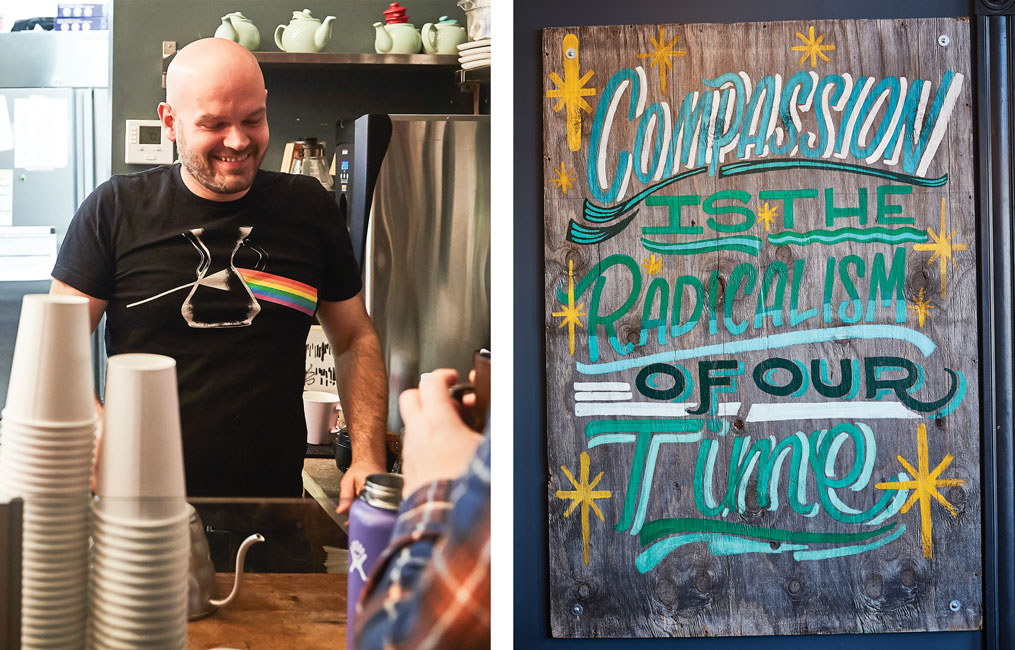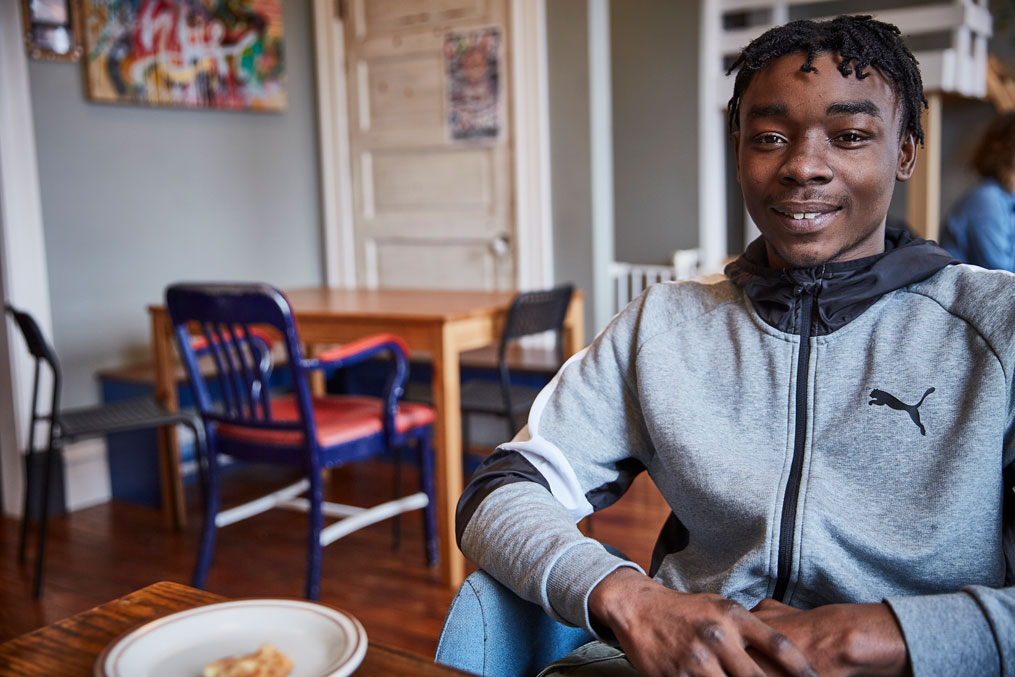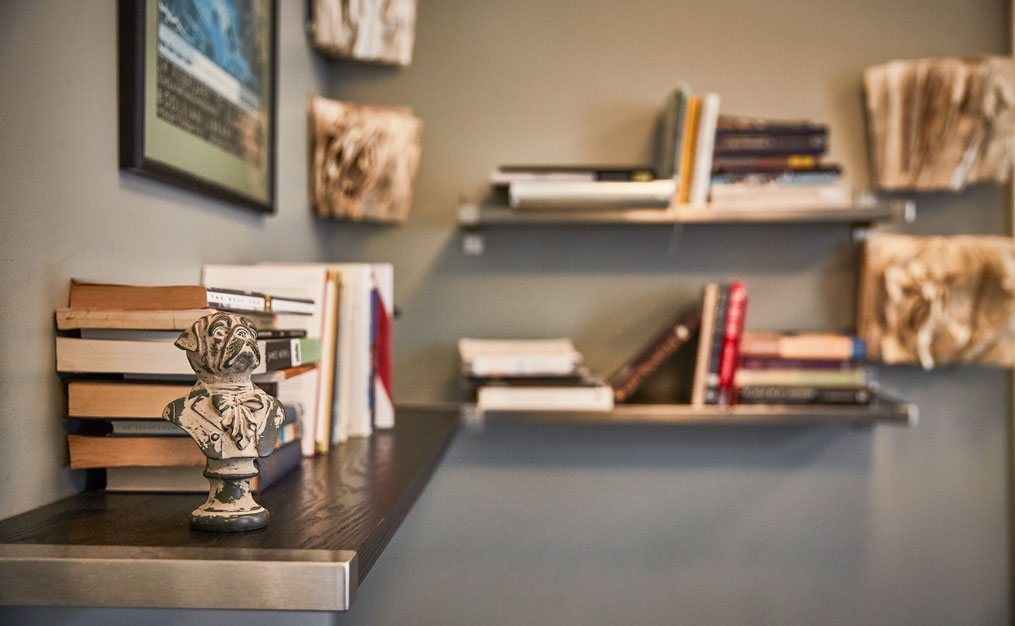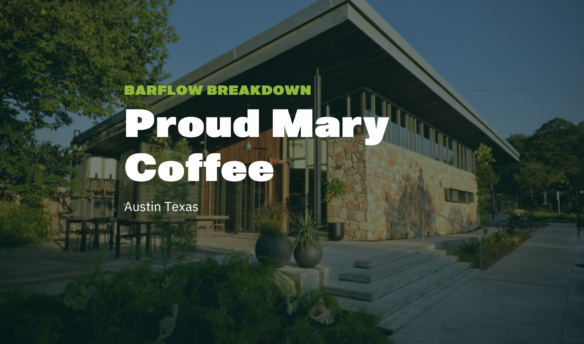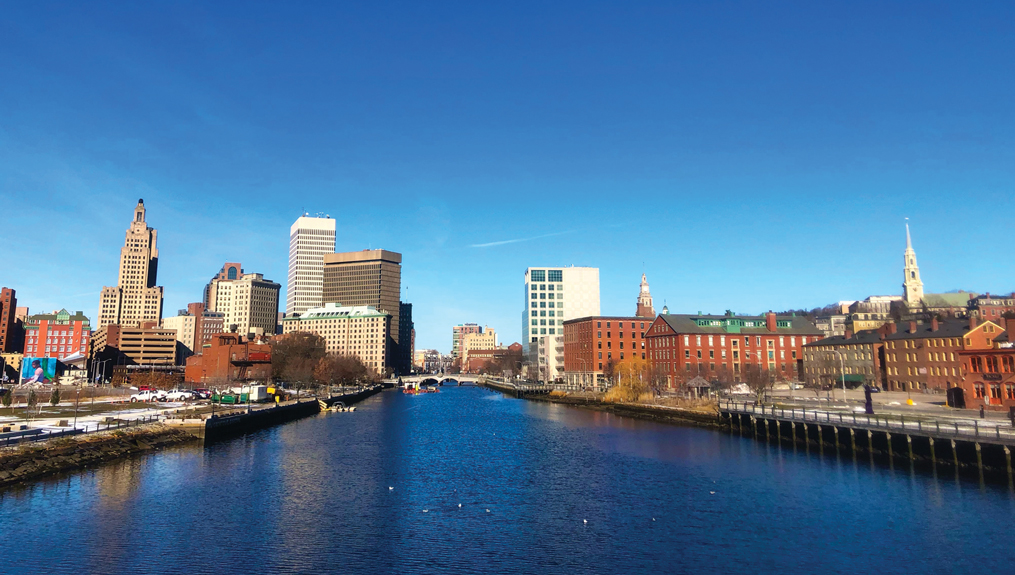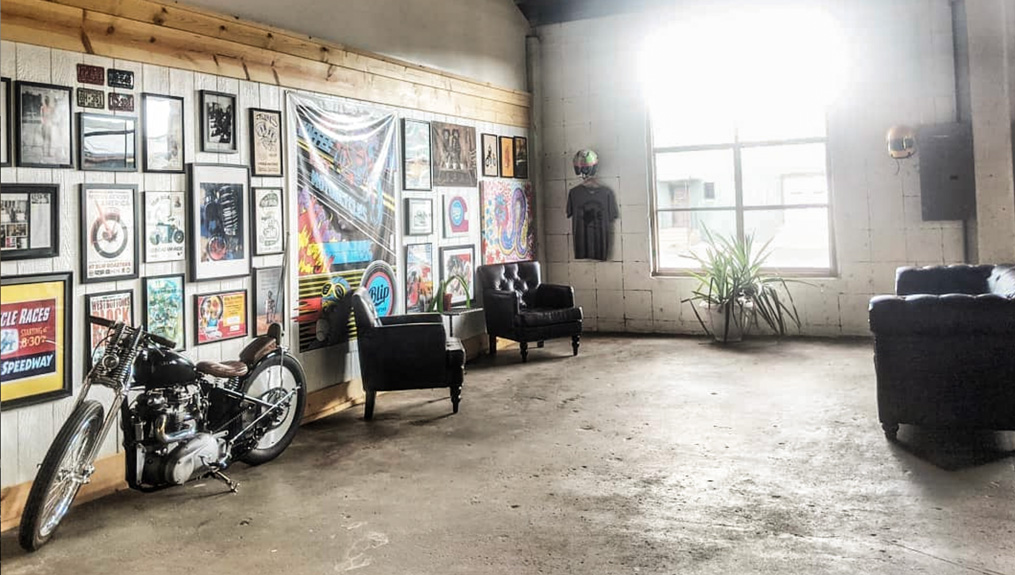All photos by Izaiah Johnson
[A]t first glance, Rise Coffee might look like a lot of other neighborhood specialty coffee shops.
It’s “one of those spots that simply feels good to be in,” as popular St. Louis food magazine Sauce puts it. There’s the cozy warmth of red brick and well-worn hardwood. The inviting quirkiness of the eclectic furnishings and decor. A friendly staff offering a simple-yet-refined coffee menu and café fare with a modern vegetarian take on classic diner offerings and the obligatory—but undeniably delicious—avocado toast.
Top it off with Rise’s location—a hip, revitalized urban neighborhood, replete with countless great restaurants and bars, craft breweries, a popular music venue, and myriad local shops and services—and you have a coffee house that would become a local go-to in nearly any city.
But Rise isn’t just any shop in any city. Observe the crowd on both sides of the bar and you might be struck by a more diverse group of people than you’re used to seeing in a boutique coffee shop. Take in your surroundings, and you might notice messages meant to stir your conscience such as, “Compassion is the radicalism of our time.”
Step onto the back patio, though, and you’ll find the heart of Rise and its unique ethos. On a patio-spanning mural are painted the words of Martin Luther King, Jr.:
“AN INDIVIDUAL HAS NOT STARTED LIVING UNTIL
HE CAN RISE ABOVE THE NARROW CONFINES OF HIS INDIVIDUALISTIC CONCERNS TO THE BROADER CONCERNS OF ALL HUMANITY.”
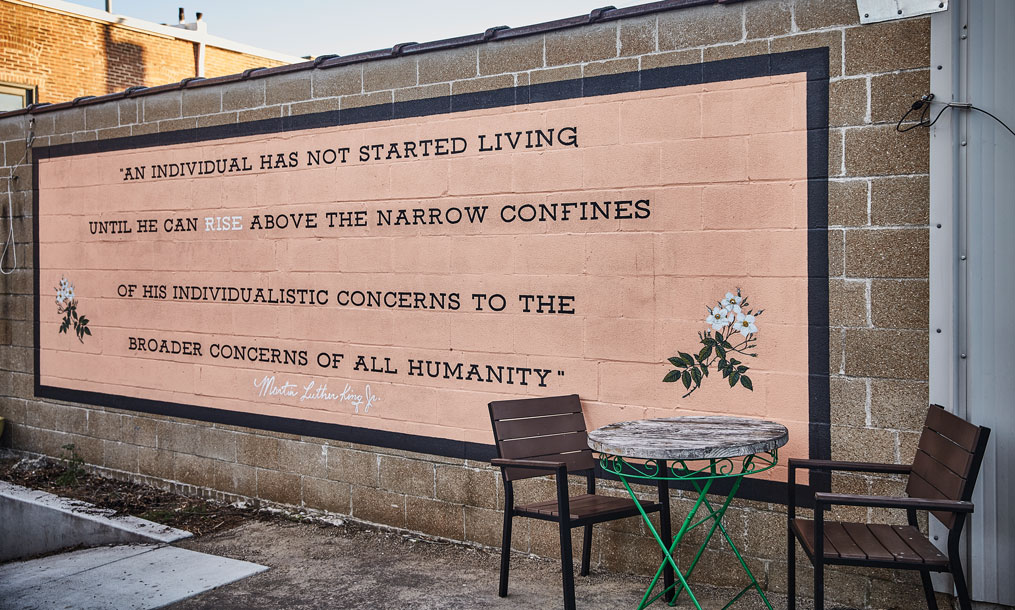
Look closer at Rise, and you might see not merely a café, but a community—a community with arms thrown wide toward anyone willing to step in. Current general manager Kristen Trudo saw it long before becoming an employee.
“I think coffee can be really pretentious and exclusive,” says Trudo. “As a customer, the thing that drew me to Rise is that it very much felt like a place that was about the people who came in the door, whoever that was.”
That welcoming posture is built into the very design of the space. Explore upstairs and you will find an area dedicated to families, where a baby gate guards entry to a wonderful world of children’s books and toys, accentuated by a tree house. Next to it, there is a library, open to students and others keeping long hours, not a “sip to sit” sign in sight. Scroll Rise’s provocative Twitter feed or catch a glimpse of the “Vote November 6” sign still lingering near the community board, and you’ll see a company engaged in the broader concerns beyond its doors.
In many ways, Rise Coffee embodies the upward thrust of the Dr. King quote that gave it its name. It began, however, with the simple search for a cup of coffee.
Rising Up
Due to her experience in social work, Rise founder Jessie Mueller was naturally concerned with issues of inclusivity, racial equity, and urban renewal. She was even working on a beautification project in The Grove, a resurgent neighborhood of St. Louis, when the idea for Rise came to her. Having nowhere to go for a coffee, she decided to start her own shop, despite no experience in the trade.
When she launched Rise in 2013, her first attempts to create an inclusive community didn’t rest on a big banner-waving cause, but something much closer to home.
“I wanted to create an inclusive space, not just racially and economically but also for parents in St. Louis City,” recalls Mueller. “Because it just tends to be that, as soon as you have a child in St. Louis, if you live in the city everyone asks you when you’re moving out to the County. So I thought, if I could create more space for families in the city, more conversations will get started around schools and how we can improve the neighborhood for all kids, for the overall region, which could inspire families to dig in and help rebuild our community more equitably.”
This mindset was embedded from the beginning, and attracted mothers like Janelle Brown.
“I think moms in general struggle with maintaining who they are when they become mothers,” says Brown. “It was a great place for me to take my kids and allow me to feel like me.”
In an environment where children are often seen as an unwelcome nuisance, Rise stood out and drew families in droves, so much so that Mueller attributes the café’s initial survival to those early stroller-pushing regulars. Soon, however, her vision for Rise would be pushed much further.
In 2014, Michael Brown’s death at the hands of a police officer in Ferguson, a suburb of St. Louis County, caused an eruption of racial tension that put the city and surrounding region at the center of national news. The ensuing riots sent unrest rippling throughout St. Louis City and surrounding St. Louis County, exposing hidden rifts that ran through every neighborhood and back to the city’s earliest days of post-Civil War growth. Although The Grove isn’t in close proximity to Ferguson, the issues facing it—racial segregation, socio-economic inequities, policing in poor communities, and urban decline precipitated by white flight, among others—were in many respects the same.
Mueller felt compelled to engage Rise in the movement—and she wasn’t alone. In the wake of the Ferguson riots, many groups mobilized throughout the region. One of these groups was a non-profit called We Stories, which was designed to get white families to open up about issues of race through reading diverse children’s literature with their kids. Many of the families that frequented the café got involved, bringing cohesion to the idea of Rise as a hub for a growing activist community.
“I don’t think until Michael Brown’s untimely death and the subsequent events in Ferguson, we felt as capable of having these conversations around equity and police brutality. And then the black community taught us how to speak about it,” says Mueller. “Many of us either didn’t know how or were too afraid to bring up the inherent divides we were witnessing every day. As truly painful as Ferguson was—and it’s awful for someone to lose his life to bring us to this point—I’m grateful that we’ve exposed the root of racism that exists in our communities and folks can talk about it more openly. That openness and vulnerability allows for growth and change to take place. It was definitely a turning point for Rise and our city as a whole.”
Repairing Rifts
Still, the new vision for inclusivity needed greater clarity. When Rise began posting Black Lives Matter signage, they were soon challenged to put action behind their words. A customer wrote them a public note asking them how, as The Grove underwent growing pains and bore the weight of its own racial tensions, they would truly show the value of those in their community.
That question gave birth to “Coffee for the People.” This program, which has become a fixture of Rise, offers customers the option of buying a coffee for anyone who needs it.
“People can still come in and grab a coffee at any time, even if they can’t afford it,” explains Mueller. This idea became a way for Rise to communicate what it was about to its community, and to invite customers to join in that mission. It soon began to draw more neighborhood residents into the café.
This generosity of spirit soon extended into virtually any area of the business, including hiring choices. At one point in 2014, Mueller took a chance on an experienced but unemployed barista who was recovering from a mental health crisis the previous year. That barista is now the owner of Rise.
“Rise for me was the place where I felt safe and was welcomed when I didn’t feel welcomed at a lot of places,” says Aaron Johnson, whom Mueller eventually promoted to manager before selling him the business in 2015. “With the condition my mind was in, still in the midst of my recovery, I probably couldn’t have gotten hired at most cafés in the city.”
Even when Johnson was a customer, Mueller felt a shared need for purpose akin to what she had felt as a new mother struggling with post-partum depression. The partnership quickly strengthened between them.
“It’s so important feeling like you’re doing something to better yourself and your community,” says Mueller. “And Rise became that for both of us. It was sort of a magnetic story where we both could see that we needed Rise, so we could rise.”
It was clearly the right match. Johnson, who moved the shop to a bigger space a few doors down that he purchased with Mueller in 2016, has taken her original vision even further since taking over. Concerned that Rise would play a role in gentrifying the neighborhood, pushing out longtime residents by drawing in wealthier outsiders, he shifted his priorities to hiring neighborhood residents. He’s since hired six, none of whom came in with coffee experience.
Those hires aren’t getting any special treatment, though. Kavon Sykes, one of those neighborhood employees, was drawn to Rise in the same way.
“When we first met them, they were extra nice and polite,” he says. “They invited us in and treated us like family.”
Since officially joining that family, Sykes has fallen in love with coffee, and enjoys finally being able to walk to work.
Learning to Listen
For his part, Johnson is far from satisfied with the work Rise has done.
“The neighborhood has tipped over toward unstoppable development, and it prompts a lot of questions that I don’t always know the answer to,” he says. “It bothers me. I don’t think a café can ever do enough in this situation.”
That won’t stop him from trying. His commitment to creating a welcoming space is one reason that, while there is a clear commitment to quality in the craft of food and coffee at the shop, it’s not front-and-center. They’ve got all the key pieces: the pour-over menu, the Linea Classic, the Fetco brewer, the EK43 and Mythos grinders. Yet somehow it’s all unassuming. Many customers didn’t even notice when Rise began to roast their own coffee last year.
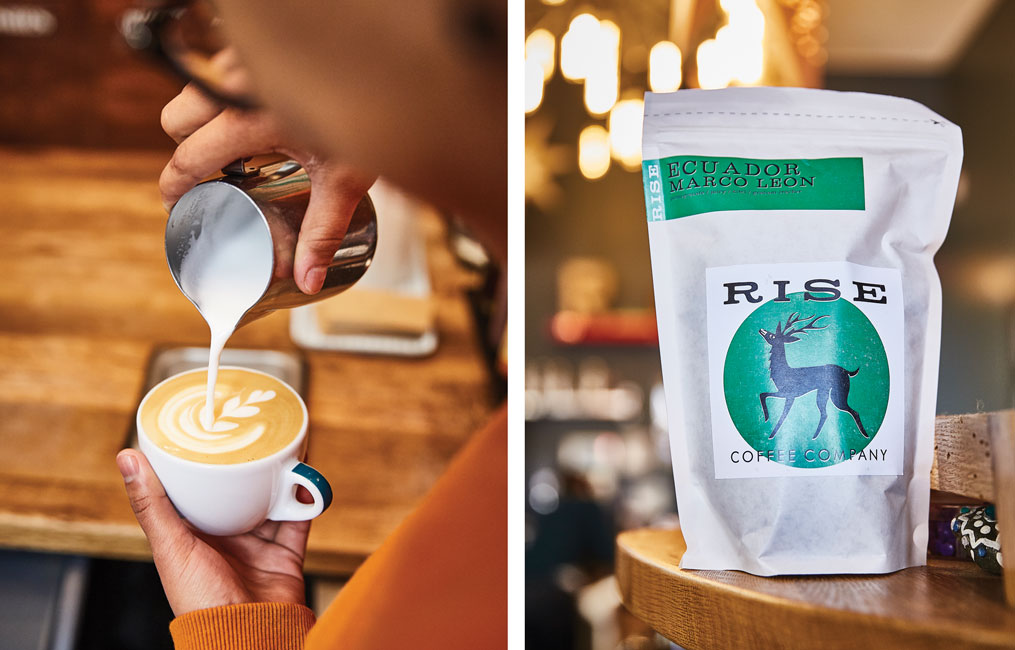
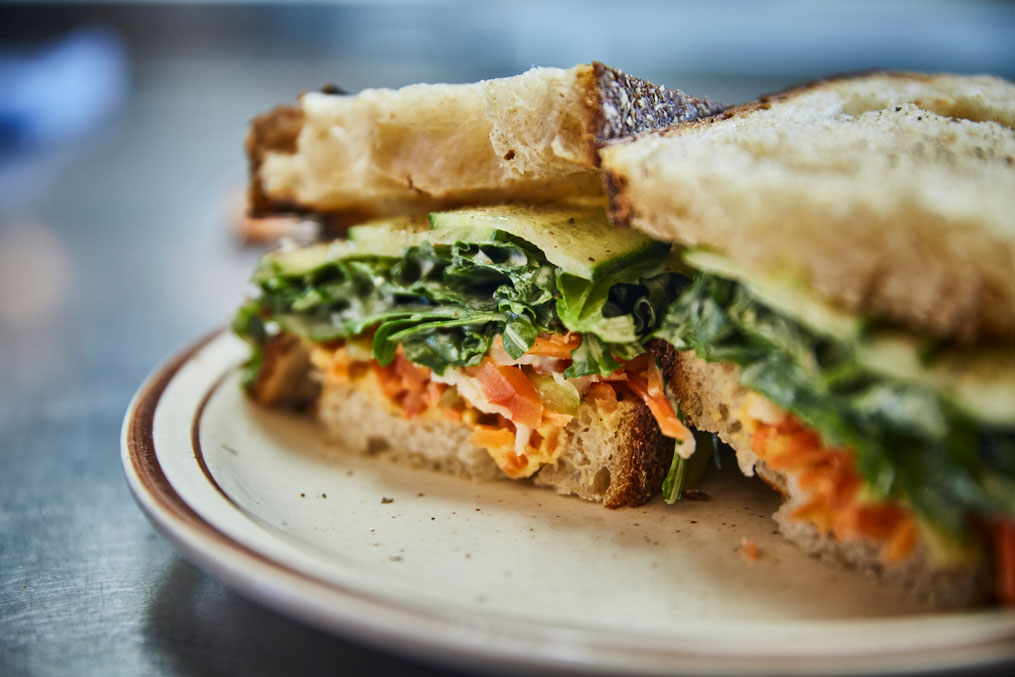
“We will never stress education to our customers,” says Johnson. “We want to be smart enough to talk to the three percent of people who actually care, but I feel like cafés have those barriers hidden all around them.…You never welcome someone to dinner and then talk to them for five minutes about each dish. That’s not hospitality.”
Authentic hospitality, in Johnson’s definition, begins with listening. It’s how he responds to his customers, not just as customers, but as people. It’s also how he chooses the issues Rise will champion—from protesting local policing to advocating for LGBTQ equality to stumping for a preferred candidate in the local alderman’s race—in hopes of making a difference.
“Early on at Rise I learned that you need to listen to the people around you who are more affected by these issues,” he says. “If you listen well, then you will respond more appropriately than if you just get fired up about everything.”
That focus on building bridges through hospitality has led to new opportunities. Rise recently opened its second location, which is housed inside the Contemporary Art Museum St. Louis (CAM). While the museum, with its clean, modern aesthetic, might seem a strange fit for the gritty, eclectic style of Rise, for CAM executive director Lisa Melandri, the pairing was natural.
“We’re here quite literally in the geographic center of St. Louis, and it’s core to who we are to want to make sure that everybody can come in and make use of this institution in ways that are best for them,” explains Melandri. CAM does not charge admission, which helps to fulfill the museum’s mission—to make contemporary art accessible to all—a mission very much akin to Rise’s own. “Art for the People,” you might say.
Coffee for the People
Rise is a rare kind of shop, and what it adds to its community is invaluable to its members. As Janelle Brown puts it, “It shows the best side of St Louis,” serving as an emblem of unity in a city devastated by division of all kinds.
But should it be so rare? Mueller isn’t so sure.
“Cafés are the third place, the spot where ideas can flourish and people can come together in a way that they most likely wouldn’t anywhere else,” she says. While she stops short of saying that every café owner should feel the burden to create a replica of Rise, she still emphasizes that with that role comes a responsibility for an owner to be aware of and responsive to the needs of the community in which they find themselves.
Still, at the end of the day, both Mueller and Johnson acknowledge the limitations that come with being a coffee shop. If Rise’s success is any indication, though, those limitations may not be as limiting as they seem.
“All of these kinds of places like Rise—that really care about community, you know—it’s way more important than coffee,” says Melandri. “But the truth is, it’s around the coffee that people sit down and meet one another where they are.”
Perhaps it is in discovering the potential to be found within those limitations that shops like theirs can truly rise above.
The Grove
4176 Manchester Ave.
St. Louis, MO 63110
Hours: Mon-Fri, 6:30 a.m.-6:00 p.m.; Sat-Sun, 6:30 a.m.-7:00 p.m.
CAM
3750 Washington Ave.
St. Louis, MO 63108
Hours: Wed, 10:00 a.m.-5:00 p.m.; Thurs-Fri, 10:00 a.m.-8:00 p.m.;
Sat-Sun, 10:00 a.m.-5:00 p.m.; Mon-Tue, Closed



